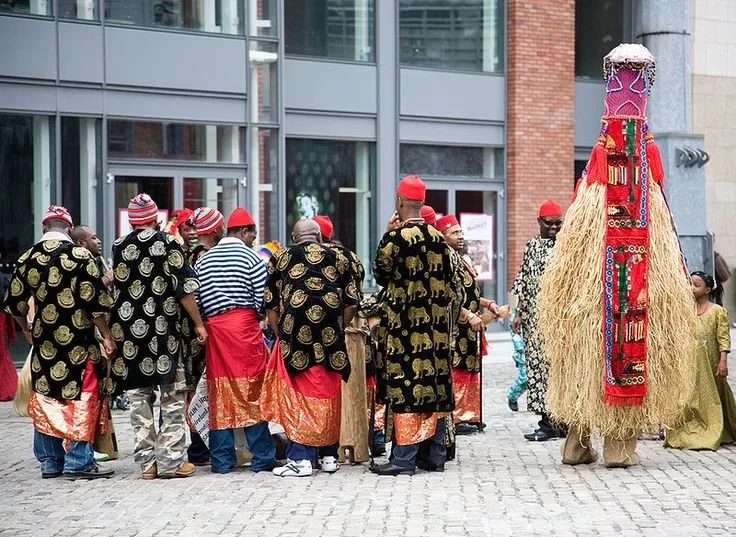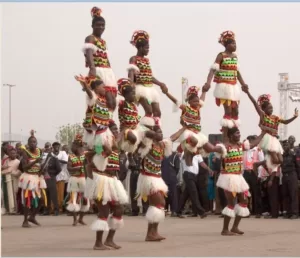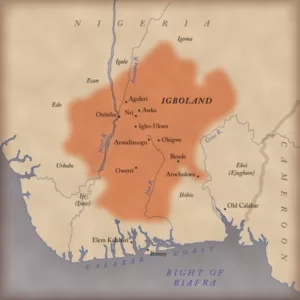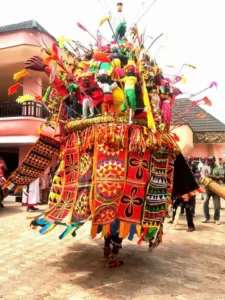History of Igbo Culture and Tradition


The History of Igbo Culture and Tradition, such an interesting topic. You might be wondering why I said so. Well, you need to sit back and relax to know why.
Let’s begin.
Who are the Igbo tribe?


The Igbo, also known Ibo, are people living primarily in the southeastern part of Nigeria. They speak Igbo, a language of the Benue-Congo branch of the Niger-Congo language family.
The tribe may be grouped into the main cultural divisions such as northern, southern, western, eastern or Cross River, and northeastern.
Where is the Igboland?


The home of the Igbo people is the Igboland. It covers most of South-eastern part of Nigeria. This region is divided by the Niger River into two unequal sections; the eastern region (the largest) and the midwestern region.
Who are the neighbouring tribes of Igbos?
The Igbos are also surrounded on all sides by other tribes such as the Bini, Warri, Ijaw, Ogoni, Igala, Tiv, Yako and Ibibio.
What are the Igbo culture and tradition?


The Igbo culture and tradition, ‘Ọmenala ndị Igbo’ in Igbo are the customs, practices and traditions of the Igbo people of South-eastern part of Nigeria.
What is the history of the Igbo culture and tradition?
There is a lot of speculations about the origin of the Igbo people. In the last fifty years, the tribe has actually tried to make research about their origin like any group of people that are anxious to discover their origin and reestablish how they came to be, how they are, their experiences under colonialsim and since Nigeria’s Independence have emphasized for them the reality of their group identity which they want to anchor into authenticated history.
Historians believe that the Igbos are originally located around the Niger-Benue confluence. Due to population pressure, they migrated through the Niger. During the migration, the Igbos moved from Egypt, through the Sudan and southwards to their present location.
According to the available sources of analysis have led to the belief that there exists a core area of Igboland, and that waves of immigrant communities from the north and west planted themselves on the border of this core area as early as the ninth century.
This core area includes Owerri, Orlu and Okigwe. They form a belt, and the people in this area have no tradition of coming from anywhere else. Migration from this area in the recent past tended to be in all directions, and in this way the Igbo culture gradually became homogenized.
Read more: The origin and meaning of iyawo the yourba word for wife


In the same pattern of migration from this core area, other people also entered the Igbo region in about the fourteenth or fifteenth centuries.
Many of these people still exhibit different features from that of the traditional Igbos. For instance, geographical marginality, kingship institution, a hierarchical title system and the ‘amosu’ tradition (witchcraft). Some Igbo speaking peoples claimed that they were not Igbo, the word was used as a term of abuse for ‘less cultured’neighbours. The word is now used in three senses, to describe Igbo territory, domestic speakers of the language and the language spoken by them.
The Igboland and Europe had their first contact in the mid-fifteenth century with the arrival of the Portuguese. Between 1434-1807, the Niger coast acted as a contact point between African and European traders, beginning with the Portuguese, then the Dutch and finally the English. There was an emphasis on trade rather than empire building, in this stage. Trade became a primary concern to the Igbo slaves.
A new trading era came with the abolition of the slave trade in 1807, concentrating on industry (palm products, timber, elephant tusks and spices). The British began to combine aggressive trading with aggressive imperialism at this stage. They saw the Igboland as productive, and refused to be confined to the coast.
In 1900, the area that had been administered by the British Niger Company became the Protectorate on Southern Nigeria, also incorporating what had been called the Niger Coast Protectorate. This area was controlled and passed from the British Foreign Office to the Colonial Office. Prior to it being officially conquered, Igboland was being treated as a British colony.
Between 1900 and 1914; when Northern and Southern Nigeria were amalgamated, there had been twenty-one British military expeditions into Igboland. First time in their history in 1928, Igbo men were made to pay tax, they were a subject people.
In the early decades of the twentieth century, they was an attempt to take over political control of Igboland met with resistance and cultural protest.
A nativistic religious movement sprang up; the ekumeku, which inspired short-lived but feverish messianic enthusiasm.
The rumours that the Igbo women were being assessed for taxation, sparked off the 1929 Aba Riots, a massive revolt of women never encountered before in Igbo history. However, the engine of imperialism could not be quenched, and once it had begun, Igbo culture would never be the same again.
Till today, the Igbo culture and traditions has been practiced from generation to generation. It has always consists of ancient practices as well as new concepts either by external influence or by cultural evolution.
These customs and traditions of the Igbos include:
- The language dialect
- The visual arts
- The dance forms
- Attire
- Cuisine
- Music




